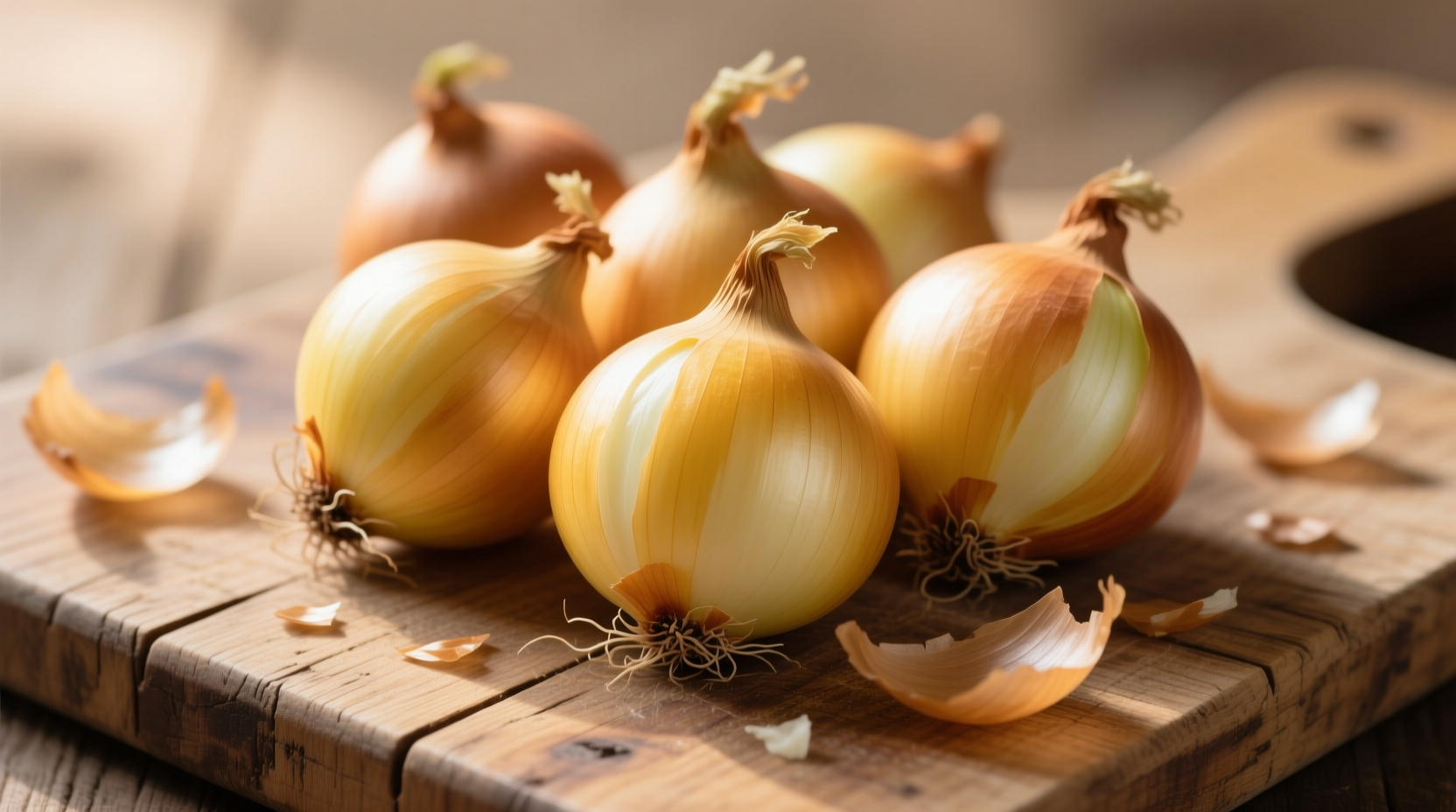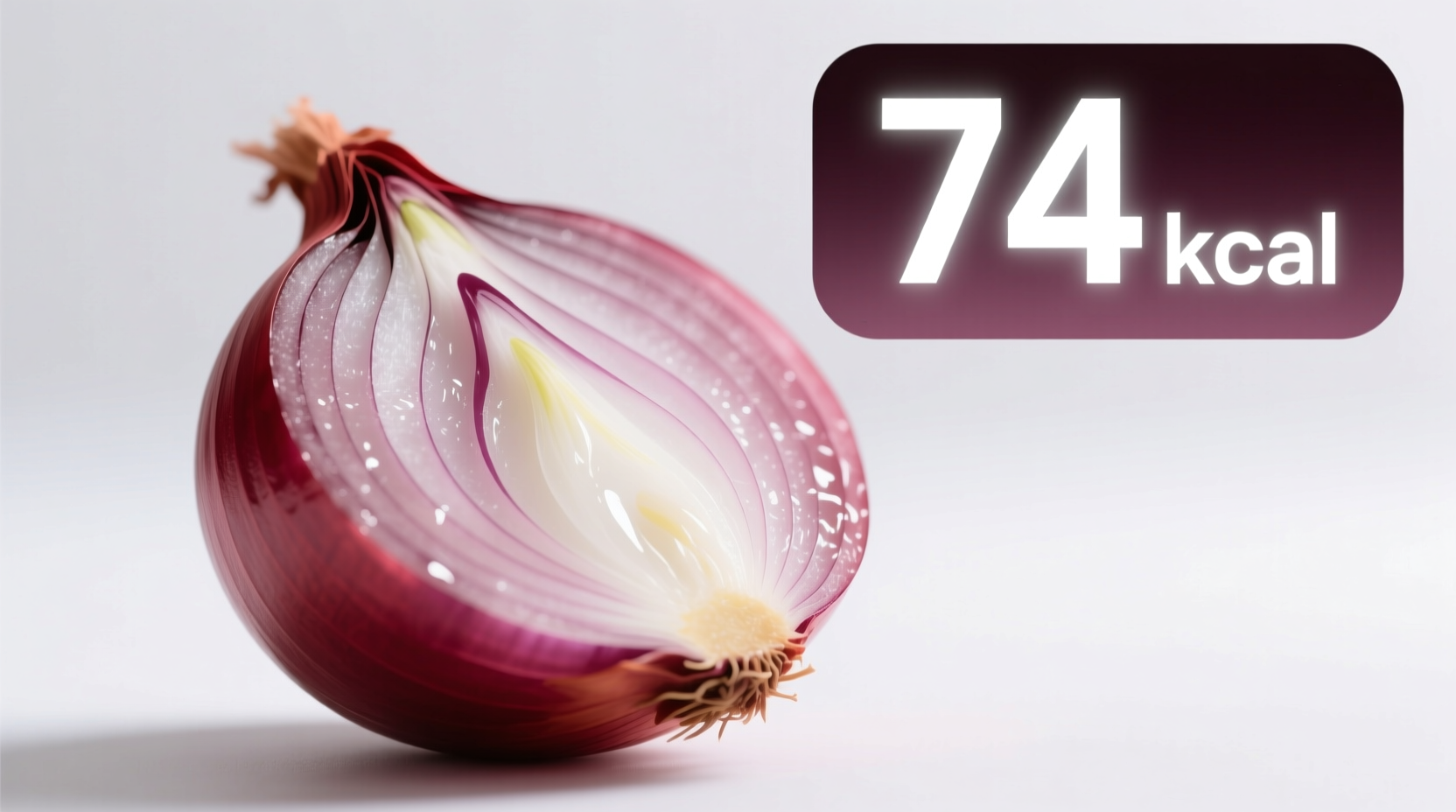Understanding Onion Nutrition: A Complete Calorie Guide
When planning meals or tracking your daily nutrition, knowing the exact calorie content of common ingredients like onions is essential. This guide provides accurate, science-backed information about onion calories and their nutritional value to help you make informed dietary choices.Onion Calorie Basics: What You Need to Know
Onions are one of the most versatile and widely used vegetables in cooking, yet many people wonder about their actual calorie content. The good news is that onions are extremely low in calories while providing valuable nutrients. According to the USDA FoodData Central database, the standard reference for nutritional information in the United States:
| Onion Type | Calories per 100g | Medium Onion (110g) | Carbohydrates | Fiber |
|---|---|---|---|---|
| Yellow Onion (raw) | 40 | 44 | 9.3g | 1.7g |
| Red Onion (raw) | 40 | 44 | 9.5g | 1.8g |
| White Onion (raw) | 42 | 46 | 9.7g | 1.6g |
| Green Onions (scallions) | 32 | 16 (per 50g) | 7.3g | 2.6g |

How Cooking Methods Affect Onion Calories
The preparation method significantly impacts the final calorie count of onions in your dish. While raw onions maintain their low-calorie profile, cooking techniques can alter their nutritional value:
- Raw onions: Preserve all natural nutrients with no added calories
- Sautéed onions: A cup of sautéed onions contains approximately 64 calories, but this increases if oil or butter is used (about 120 calories per tablespoon of oil)
- Caramelized onions: The natural sugars concentrate during slow cooking, slightly increasing calories per volume (about 70 calories per cup)
- Fried onions: Significantly higher in calories due to oil absorption (approximately 400 calories per cup)
Onions in Your Daily Diet: Practical Applications
Understanding how onions fit into your overall nutrition plan is crucial for meal planning. Here's how to maximize their benefits:
Portion Control Made Simple
When tracking calories, remember these practical measurements:
- 1 tablespoon of chopped raw onion = 2 calories
- 1/4 cup of chopped raw onion = 10 calories
- 1/2 cup of chopped raw onion = 20 calories
- 1 whole medium onion = 44 calories
Nutritional Benefits Beyond Calories
Onions offer more than just low calories. They're packed with beneficial compounds:
- Vitamin C: One medium onion provides about 11% of your daily recommended intake
- Fiber: Supports digestive health and helps maintain stable blood sugar levels
- Antioxidants: Particularly quercetin, which has anti-inflammatory properties
- Sulfur compounds: Contribute to various health benefits including cardiovascular support
Context Matters: When Onion Calories Vary
Several factors can cause slight variations in onion calorie counts:
- Seasonal differences: Onions harvested at different times of year may have slightly varying sugar content
- Growing conditions: Soil composition and climate affect nutritional profile
- Storage duration: Longer storage can lead to minor moisture loss, concentrating calories slightly per weight
- Preparation method: As mentioned earlier, cooking technique dramatically affects final calorie content
According to research published by the National Center for Biotechnology Information (NCBI), the nutritional composition of Allium species (including onions) can vary by up to 15% based on growing conditions and variety, though the calorie differences remain relatively small for dietary planning purposes (source).
Onions and Weight Management
For those monitoring their weight, onions are an excellent dietary addition. Their low calorie density (calories per volume) means you can add substantial flavor and volume to meals without significantly increasing calorie intake. Registered dietitians often recommend using onions as a flavor base to reduce the need for higher-calorie ingredients like oils, cheeses, or processed sauces.
The Journal of Nutrition and Metabolism notes that incorporating low-calorie, high-volume foods like onions can help increase meal satisfaction while maintaining a calorie deficit for weight loss (source).
Common Misconceptions About Onion Calories
Several myths persist about onion nutrition that deserve clarification:
- Myth: All onions have the same calorie content
Fact: While differences are minimal, white onions tend to be slightly higher in calories than yellow or red varieties - Myth: Cooking onions significantly increases their calorie count
Fact: The onion itself doesn't gain calories when cooked—added fats during cooking are what increase the calorie content - Myth: Sweet onions are much higher in calories
Fact: While slightly sweeter varieties like Vidalia may have marginally more sugar, the difference is minimal (about 2-3 extra calories per 100g)
Practical Tips for Using Onions in Healthy Cooking
Maximize the nutritional benefits of onions with these chef-recommended techniques:
- Use raw onions in salads and salsas to preserve maximum vitamin C content
- When sautéing, start with a small amount of broth or water instead of oil to reduce added calories
- Let chopped onions sit for 10 minutes before cooking to maximize beneficial compound formation
- Add onions early in cooking processes to allow their natural sweetness to develop without added sugars
- Use onion tops (greens) which contain additional nutrients with virtually no calories











 浙公网安备
33010002000092号
浙公网安备
33010002000092号 浙B2-20120091-4
浙B2-20120091-4